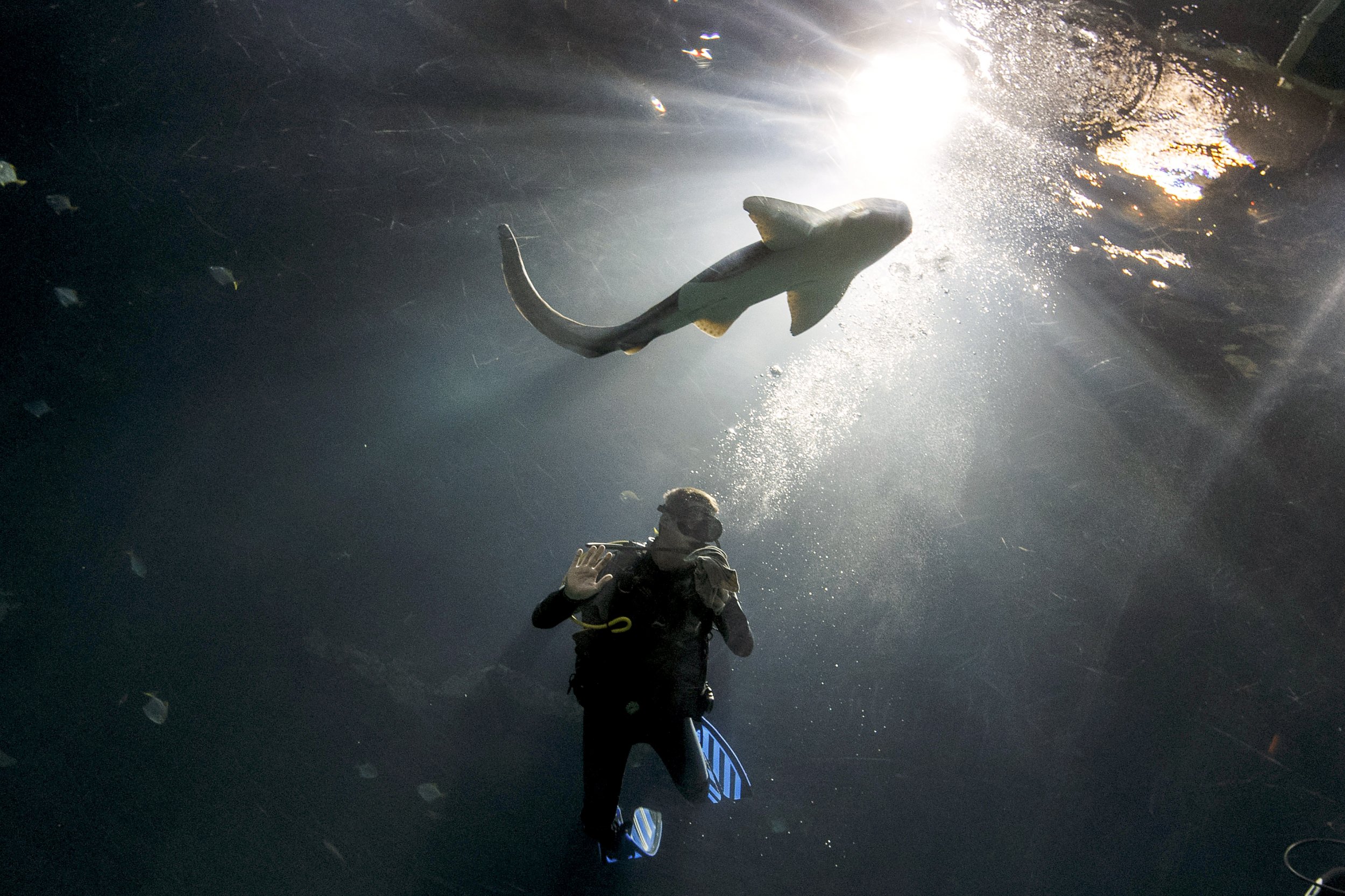
The mystery of what's been killing the leopard sharks that have washed up on the shores of San Francisco Bay has been solved. As shark after shark turned up dead on the beach, researchers cut them open to find that their brains were riddled with lesions. Now, scientists think they know what's been chewing away at these animals.
The culprit appears to be Miamiensis avidus, a single-celled organism that fish pathologist Mark Okihiro told NBC Bay Area likely swam through the infected shark's noses to reach their brains.
By analyzing the cerebrospinal fluid of five sharks found dead in the San Francisco Bay and two that surfaced elsewhere, scientists were able to all but identify the organism. Okihiro told National Geographic that the samples from the five Bay Area sharks contained DNA from Miamiensis avidus, while the out-of-towners did not. That, to him and other researchers, suggested that there was a localized outbreak of the parasite.
Similar to amoeba, the organism has also been observed to infect farmed fish, particularly olive flounder in South Korea and Japan.
While the number of sharks to wash up on shore has been small, many more of them likely died underwater according to Okihiro. He estimates the total death toll to include over "1,000 leopard sharks, 200-500 bat rays, hundreds of striped bass, and dozens of smoothhound sharks, halibut, thornback rays, and guitarfish," reports Eric Simons for National Geographic.
Although leopard sharks are not an endangered species, marine biologist Andrew Nosal tells NBC Bay Area that their deaths turn them into miners' canaries of a sort: "When they die and wash ashore, it's pretty obvious," he said. "We see it. But what about all the other species that, perhaps, are getting sick and dying and simply sinking to the bottom that we just don't know about? There's a lot more at stake here than just leopard sharks."
Still, this event is not the first time the sharks have experienced such "mass die-offs." Similar events occurred in 2006 and 2011 after particularly heavy rains—one potential reason for the die-offs is low salinity in the water, which a big rain might cause. Another possible explanation is the spread of "human toxins" via rain water into the ocean, according to National Geographic, to whom Okihiro said, "Those are things that are going to be pretty difficult to pin down...But at least we have a starting point now."
Uncommon Knowledge
Newsweek is committed to challenging conventional wisdom and finding connections in the search for common ground.
Newsweek is committed to challenging conventional wisdom and finding connections in the search for common ground.
About the writer
Joseph Frankel is a science and health writer at Newsweek. He has previously worked for The Atlantic and WNYC.
To read how Newsweek uses AI as a newsroom tool, Click here.








